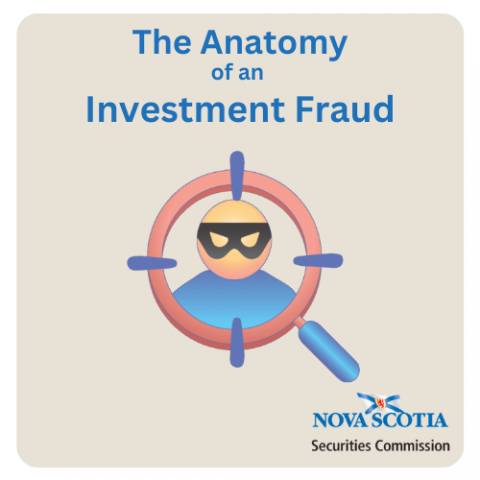Submitted by nsscadmin on

During Fraud Prevention Month the Nova Scotia Securities Commission is issuing another warning to investors about a widespread Pig Butchering crypto assets scam that has caused substantial losses for several Nova Scotians. These losses total more than $1 million, with some individual investors losing hundreds of thousands of dollars.
Here’s how the scam typically plays out:
A person will receive an unsolicited message via text or through a messaging app like WhatsApp or Telegram. The person sending the message with try to develop a personal relationship with the receiver of the message. They will often be very friendly and cordial while trying to develop this relationship.
If they are successful in developing a relationship, eventually, sometimes long after the first encounter, the messenger will mention they have recently made a lot of money by investing in crypto assets. They will in-turn recommend investing in crypto assets to their new ‘friend.’ To try and downplay any risk and to get them to invest they will usually recommend a small initial investment of only a few hundred dollars. If they agree to invest the messenger will instruct them to download a trading app or file-sharing software that gives them access to their computer or mobile device.
After making the initial investment the investor will be shown an account statement, crypto wallet, or balance sheet that shows considerable growth in their investment. It’s important to remember that no investment has been made and the supposed investment growth is all fictitious. The messenger will use this fake, quick and considerable monetary gain to entice them to invest more. If the person has no access to more money, they will recommend they use credit cards, line of credit, other types of credit, or borrow the money from someone to invest in this “sure thing.”
Now that they’re making so much money on their investment the investor will eventually try to withdraw some of the cash. This could be to help pay off the credit debt they’ve incurred to invest. After making this withdrawal request, they are told they must pay taxes or fees to access their money. Like the so-called profits these taxes and fees are also a scam and another way to steal more money from the victim. Even if the taxes and fees are paid no withdrawal will be made and the messenger will vanish and break off contact with the investor taking the victim’s money with them.
The scam does not end there though. The investor will then be regularly contacted by people saying they can help them get their money back for a fee. This is often the same scammer making contact again under another name or identity while sometimes impersonating a law enforcement official, lawyer, or banker to try and revictimize the person and steal even more money.
If you become a victim of this type of scam the chances of recovering any of your money are slim to none. If you are considering trading in crypto assets here are few things to remember to protect yourself and your money:
1. Crypto asset trading is highly risky, especially from scams, but also from volatility, hacking and other risks including technology failures.
2. If you are trading in crypto assets, only use crypto asset trading platforms or dealers registered in Canada. A list of registered platforms is on the NSSC website.
3. Giving out any personal or financial information, or downloading trading apps or file-sharing software, opens you to financial and identity theft.
4. Never use credit cards or lines of credit to invest.
5. Losses from crypto assets scams are often significant and unrecoverable.
